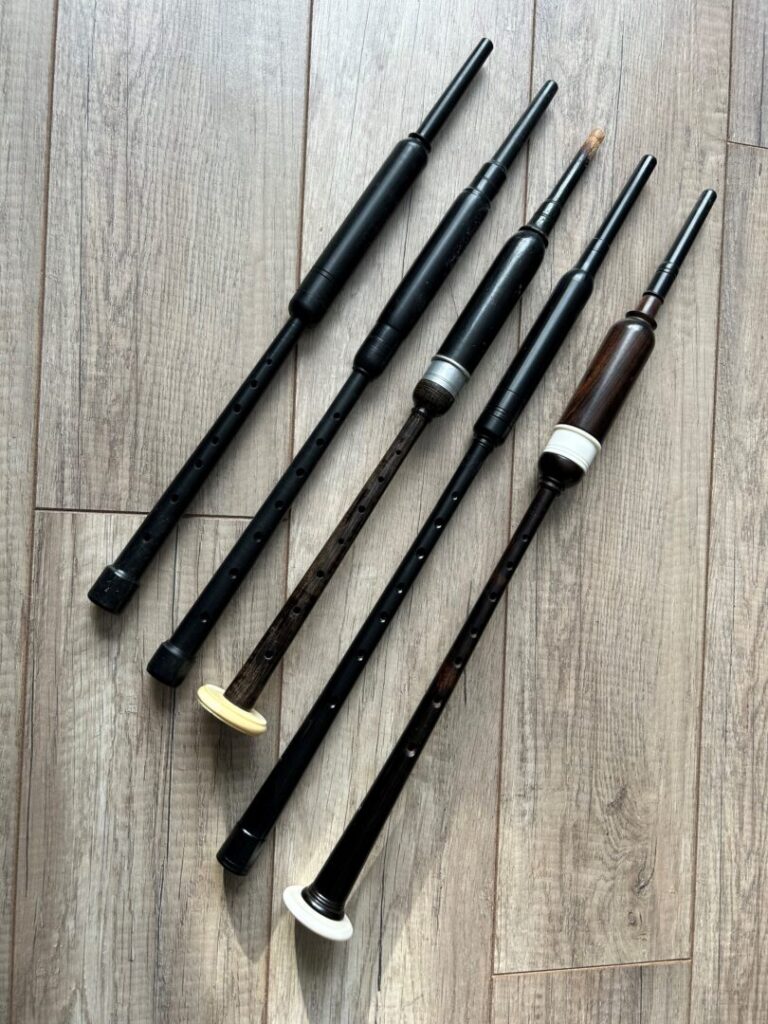When you’re learning to play the bagpipes, one of the most essential tools you’ll need is a practice chanter. It’s the primary instrument used for learning and refining your piping skills before transitioning to the full bagpipe setup. However, with so many different practice chanters available on the market, it can be tricky to know which one is best for your needs.
What is a Practice Chanter?
A practice chanter is a small, portable version of the bagpipe chanter. It has the same finger hole positions but does not require a bag or bellows. These are mouth blown for practicing your playing skills. Even though practice chanters are necessary for beginners they are useful to pipers at all skill levels and will be used for the rest of your life. The key benefit for the practice chanter is so you can play indoors while perfecting your finger technique, scales, and tunes without the complexities of the full bagpipe setup.
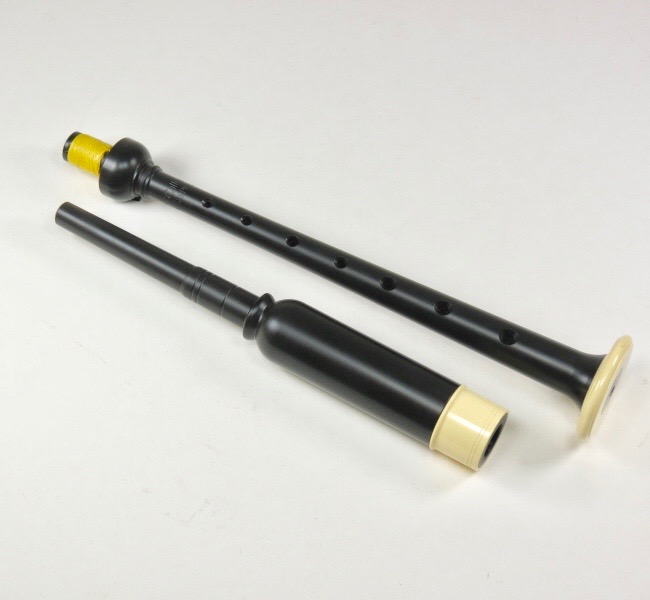
Factors to Consider When Choosing a Practice Chanter
Material of the Practice Chanter
The material of the practice chanter impacts both its durability and tone quality. Most practice chanters are made from either wood or plastic.
- Wooden Practice Chanters: Traditionally practice chanters were made of wood. They can be more expensive and require more care (like humidity control) to maintain their condition. Cracking of the wood can be an issue unless dried out after each session. African Blackwood is the most commonly used wood for pipe chanters. Stay away from rosewood chanters unless it’s an old one. Often we see subpar practice chanters made of this material.
- Plastic Practice Chanters: These are more affordable, durable, and lightweight. Chanters have been made out of plastic since the 1980’s and are the most widely available material today. Plastic chanters are great for beginners because they are low-maintenance and can withstand rougher handling.
- Aluminum practice Chanters: There are a few very unique chanters on the market at the moment. These won’t make you a better player but they are darned cool. The Ganaan practice chanter is pretty spiffy.
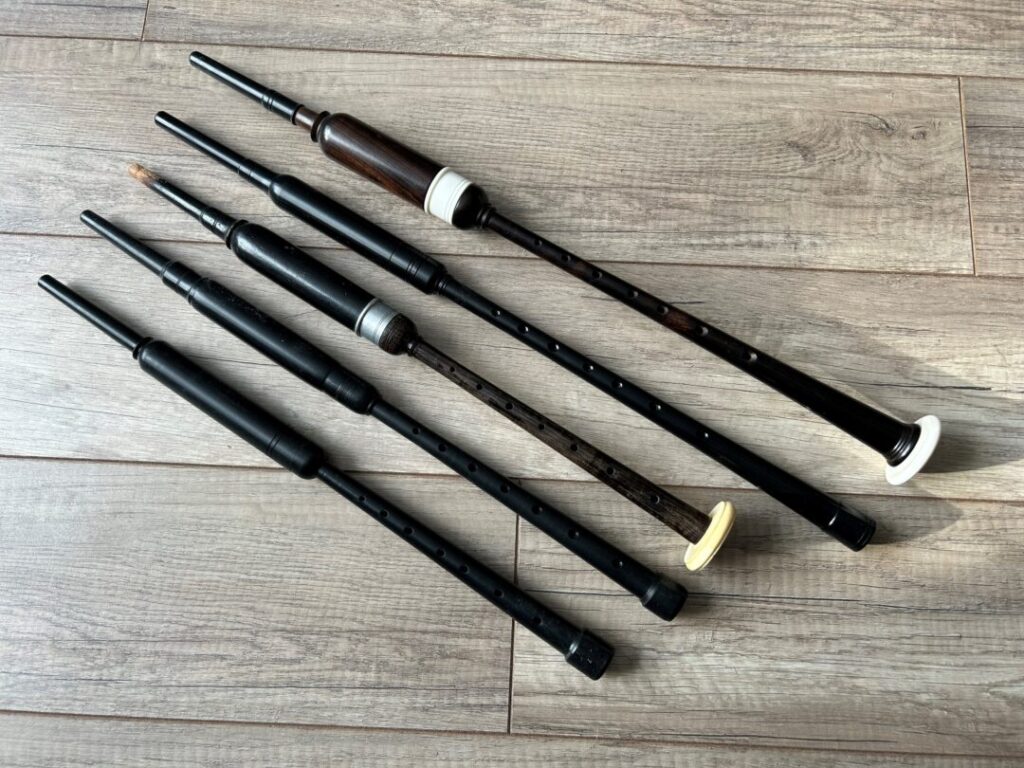
Reed Quality and Type
The reed in the practice chanter plays a crucial role in the sound and response of the instrument. Practice chanters come with different types of reeds that can be either synthetic or cane.
- Synthetic Reeds: These are more durable and stable under various weather conditions. They are popular for practice chanters due to their consistent performance and longevity.
- Cane Reeds: Traditional and favored for their natural sound. However, cane reeds are more delicate and can require more frequent replacements.
If you’re just starting out, a synthetic reed may be a more practical choice as it is more forgiving and easy to maintain.
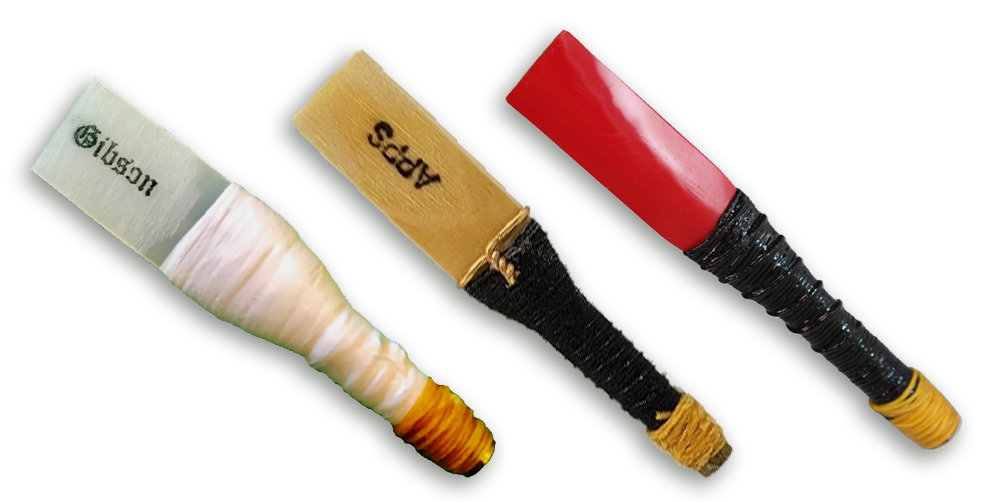
Ergonomics and Size
Practice chanters come in different sizes and designs. It’s important to choose one that feels comfortable in your hands and is easy to play for extended periods.
- Size: Most practice chanters come in standard sizes, but there are smaller chanters available for younger players or those with smaller hands.
- Grip and Ergonomics: Look for a chanter with a smooth, comfortable grip that fits your fingers well. Some chanters have ergonomic features like grooves or contoured finger holes to enhance playability.
Tone and Pitch
Different practice chanters have different tonal qualities, and this will affect how your playing sounds. While all practice chanters are designed to replicate the sound of a bagpipe, some produce a more mellow tone, while others are brighter and sharper.
If you plan to play with other musicians or need a specific pitch range, it might be worth testing different chanters to find one that matches your preferences.
Brand and Price
There are many reputable brands producing quality practice chanters, including:
- Chanter brands like McCallum, Gibson, RG Hardie, Dunbar as well as numerous others are widely trusted among pipers for their durability and tone quality.
- Price Range: Practice chanters can range from $40 to $150 or more, depending on the materials, brand, and quality. If you’re just starting out, a mid-range plastic chanter with a synthetic reed can provide a good balance of affordability and quality.
- Whatever you do – do not buy a cheap practice chanter and stay away from rosewood chanters. Often we see chanters listed on Amazon and eBay that are subpar at best.
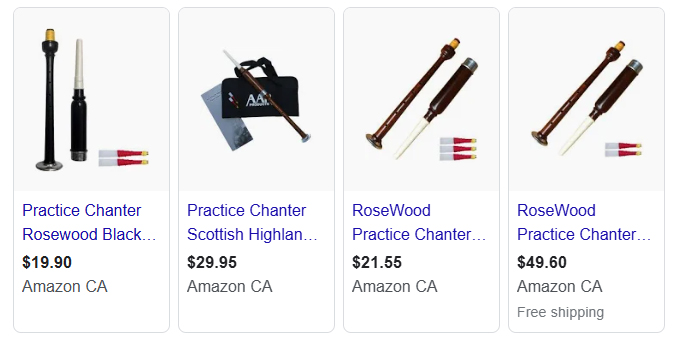
Additional Features
There are a few chanter options that come to mind but aren’t really necessary for beginners.
- Water Traps may be necessary if you are a wet blower. A few brands like Twist-Trap and Dunbar have some options available. Keep in mind that you can simply open your chanter and dry it out after each playing session. Don’t complicate you instrument.
- Tunability can be found on only a few chanters. Don’t go straight for this one if you’ve never played the pipes before. While these are pretty cool looking, they won’t help you play better. A beautiful sample of a tunable chanter is made by ES Session and the design was built for pipers who want to play with other musicians like fiddles, guitars, pianos and other instrumentalists. You will not need a chanter like this unless you are a very advanced piper.
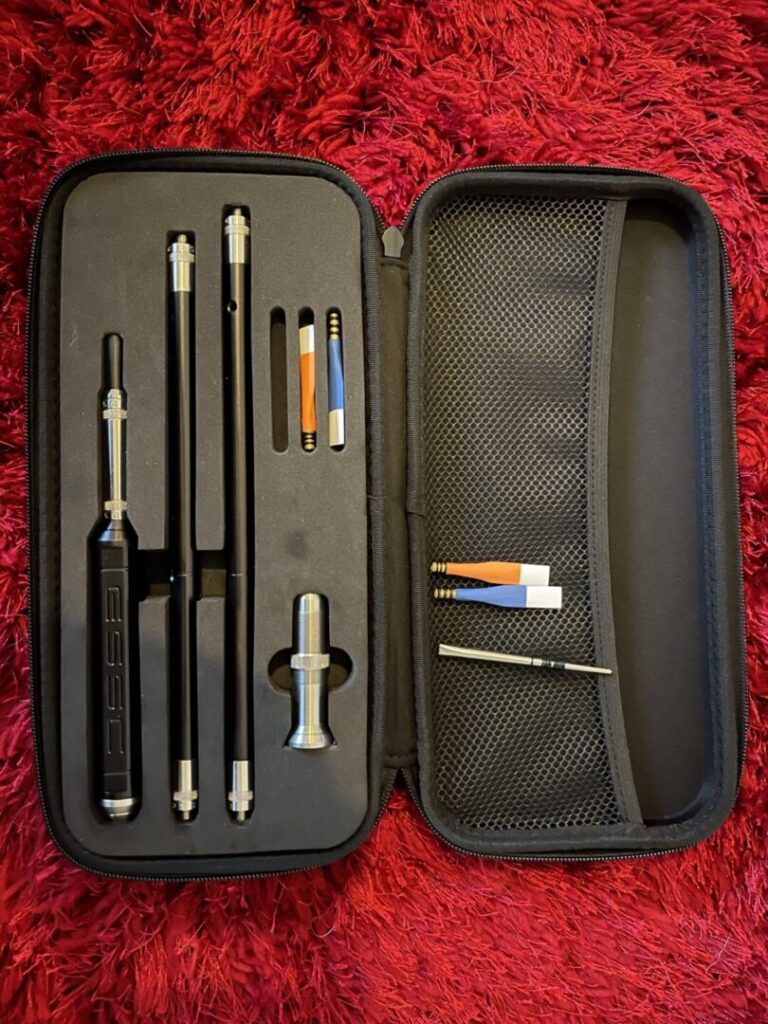
Here’s a quick video review from Matt Willis on the Maverick practice chanter:
Getting the Best Chanter for You
Choosing the best practice chanter comes down to your personal preferences, experience level, and budget. As a beginner, you may want to start with a durable, affordable plastic chanter with a synthetic reed. As you advance, you might choose a wooden chanter with a cane reed for a more authentic sound.
Ultimately, the best practice chanter is one that feels comfortable, sounds good to you, suits your needs, and helps you improve your bagpipe skills.
Bagpipes are not an easy instrument to master and you’ll be on the practice chanter for over a year before you’ll even consider blowing air into a set of bagpipes. Have patience and have fun. The people you’ll meet through this hobby will be your friends for a lifetime. Go out and find a local pipe band today.
Here’s a quick link to all of the practice chanters currently for sale on Bagpipe Central. Good luck with your musical endeavors.
Cheers,
Kyle Campbell
Bagpipe Central
Please contact us if you have an idea that you would like to share with our audience.


